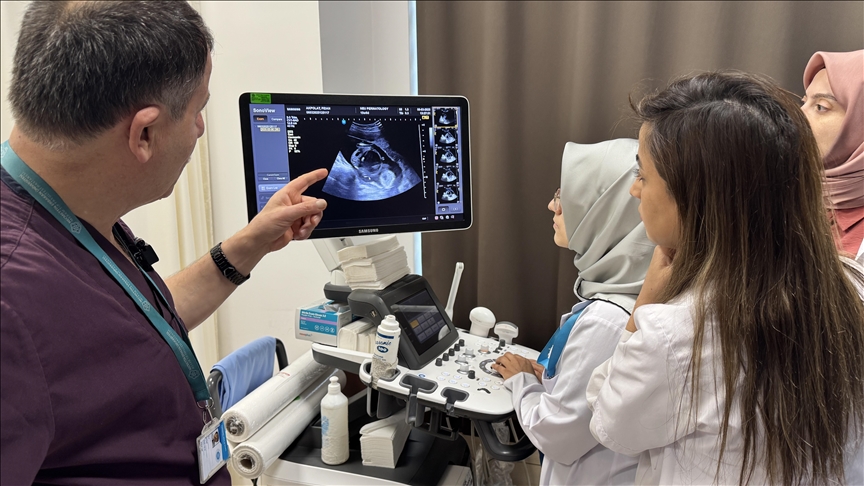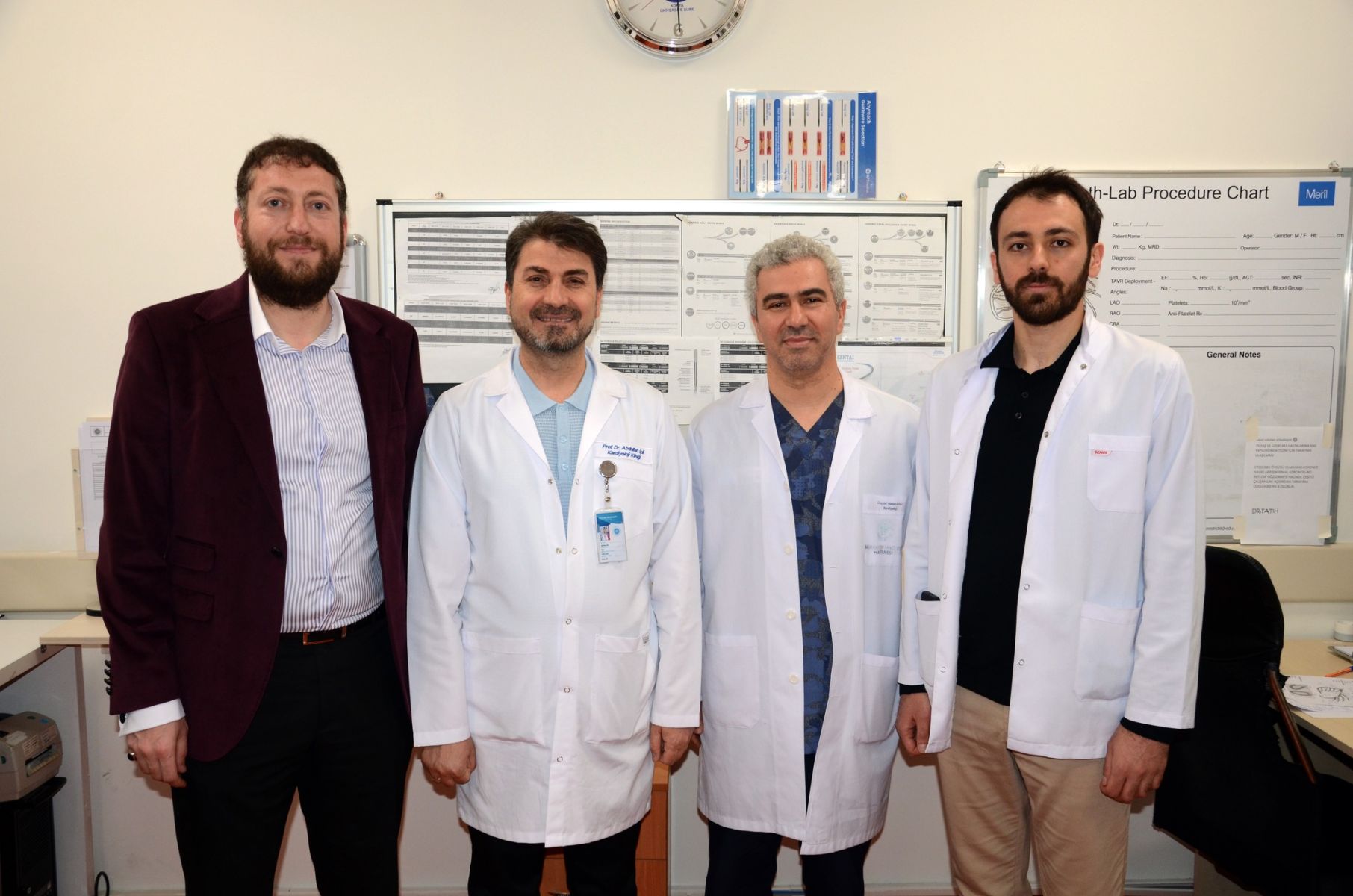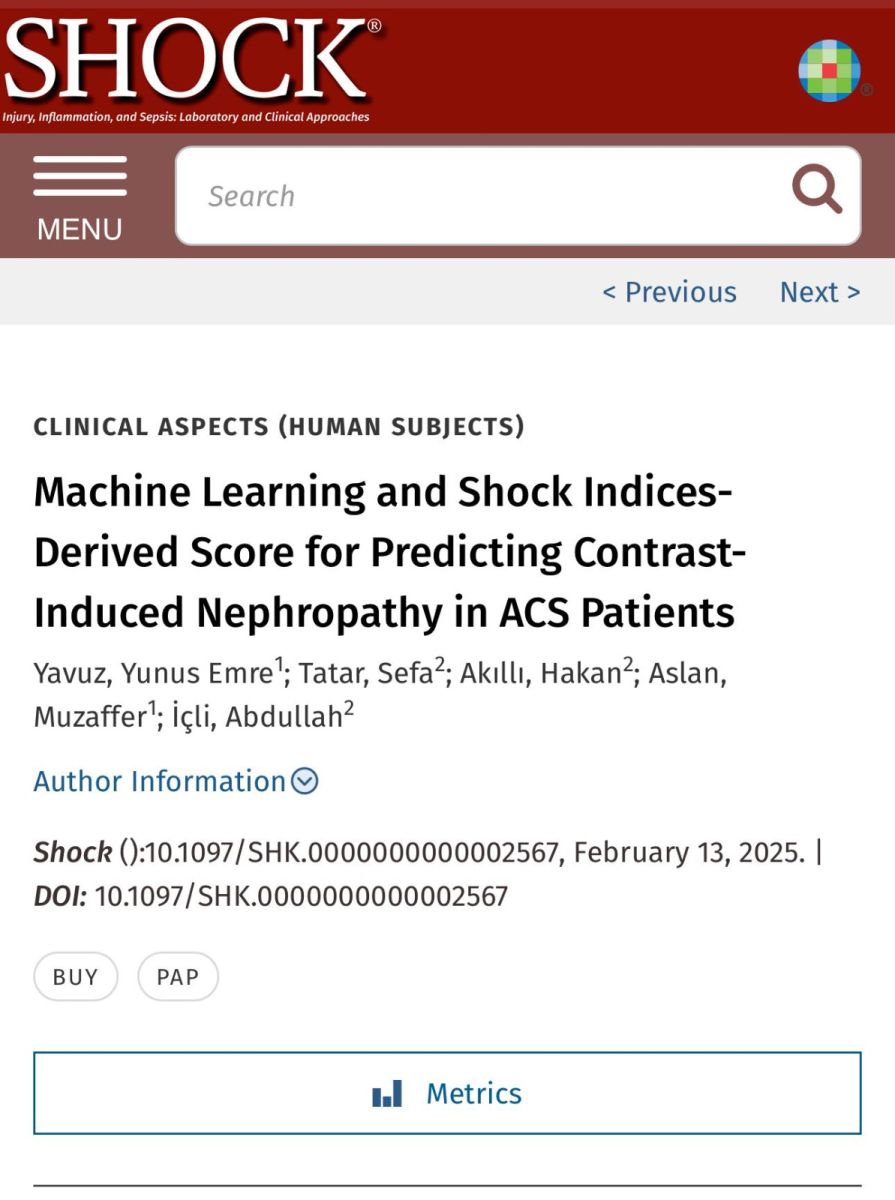With its state-of-the-art infrastructure and experienced expert staff, our University’s Faculty of Medicine Hospital continues to provide innovative solutions in the healthcare field, staying up to date with the latest advancements in medicine and technology to best meet the health needs of the public.
Faculty members of the Department of Cardiology at our University’s Faculty of Medicine, Prof. Dr. Hakan Akıllı, Prof. Dr. Abdullah İçli, Dr. Lecturer Yunus Emre Yavuz, and Dr. Lecturer Sefa Tatar, have added a new innovation to their groundbreaking work in the field of Cardiology.
Dr. Lecturer Yunus Emre Yavuz, who provided statements about the study that will make significant contributions to the scientific world, said, "We have recently published a new article in SHOCK, one of the world-renowned scientific journals, ranked in the Q1 category. In this prestigious work, published by Lippincott/Wolters Kluwer Publishing, we developed a new artificial intelligence-supported score capable of predicting the risk of Contrast-Induced Nephropathy (CIN), a serious complication that can occur in patients with Acute Coronary Syndrome (heart attack) and affect the kidneys. The contrast agent given to patients undergoing angiography due to a heart attack can impair kidney function in some individuals, leading to life-threatening consequences. Being able to predict this complication in advance is crucial to improving the patient's quality of life and creating the most accurate treatment plan. In our study, we designed a model that can identify which patients are at risk by using the shock index and other important clinical data. This allows doctors to foresee which patients are at higher risk, enabling them to take preventive measures in a timely manner and, if necessary, apply more careful follow-up or alternative treatment methods. With this model, healthcare providers can detect at-risk patients earlier and take preventive measures on time. We are delighted to contribute this study to the scientific community, which will add value to clinical practice."










